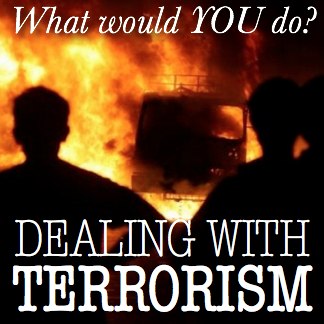Adil Najam
 Government and opposition politicians have embraced the idea of a national conference on how to deal with terrorism. The idea of a conference, in itself, is not much. But the idea of creating a national consensus and a national sense of purpose on dealing with the menace of terrorism is critical if any of the tough steps that will need to be taken, could be taken. One hopes that the conference will, indeed, do that.
Government and opposition politicians have embraced the idea of a national conference on how to deal with terrorism. The idea of a conference, in itself, is not much. But the idea of creating a national consensus and a national sense of purpose on dealing with the menace of terrorism is critical if any of the tough steps that will need to be taken, could be taken. One hopes that the conference will, indeed, do that.
But the creation of that common sense of purpose – and let us acknowledge that there is no such thing in Pakistan today – is not just the state’s responsibility. It is equally, and maybe even more, a responsibility of society. The fissures within the state reflect the even deeper fissures within society. And both build upon each other.
It is important, therefore, for all of us to have the exact same conversation that we want our political leaders to be having. A conversation that is focused on practical solutions, difficult decisions, tough realizations, and ultimately an agenda of action. Figuring out ‘how we got here’ is always important, but only to the extent that it actually leads to meaningful strategies of ‘how do we get out of here.’ So, as part of this national conversation, we ask our readers to suggest practical steps forward – ‘practical’ does not mean that it has to be easy, but it does mean that it has to be doable. What do you think should be done, by whom, and how? Have your say; there just may be someone listening.
By way of context, as well as good advice on how the national leadership – and we ourselves – should approach the question, this editorial from Dawn makes very good sense:
…the militants are not only at war with the Pakistani state, they are bent upon subjugating the Pakistani people as well. Security installations, government buildings, mosques, schools, shrines, hospitals and markets, all have been attacked. With this blurring of targets, there is also a need to realise that, whatever their nomenclature, ideology, agenda and area of operation, the militants must now be seen in holistic terms — and their tactics unanimously condemned. This should be the thought behind the attempt to form a consensus on a strategy to curb terrorism…. What is not a matter of debate is that the terrorists are prepared to stop at nothing to destroy the state and inflict their obscurantist agenda on the people. So when the national conference [conversation] takes place … it should be with the realisation that there is a common goal to pursue. There should be no room for blame-games or fiery speeches. Serious discussions will be required, with informed input from all concerned, so that a workable plan to thwart militancy can be put in place. Such a plan would include suggestions on how to prepare the people to take on those who threaten their way of life.
We also seek a serious conversation. What do you think should be done, by whom, and how? You can, of course, say whatever you want. But one hopes that we will get beyond the usual spate of incrimination, finger-pointing, conspiracy, and denial. Certainly look back if you must, but if you are spending more time looking back than forward, then you are probably driving in the wrong direction. To the extent you can, we would appreciate if you would respond to the question with the clarity and unambiguity it deserves: What do you think should be done, by whom, and how?




















































VitaHomme: acheter Kamagra en ligne – Kamagra 100mg prix France
mannens apotek: erektionspiller på nätet – diskret leverans i Sverige